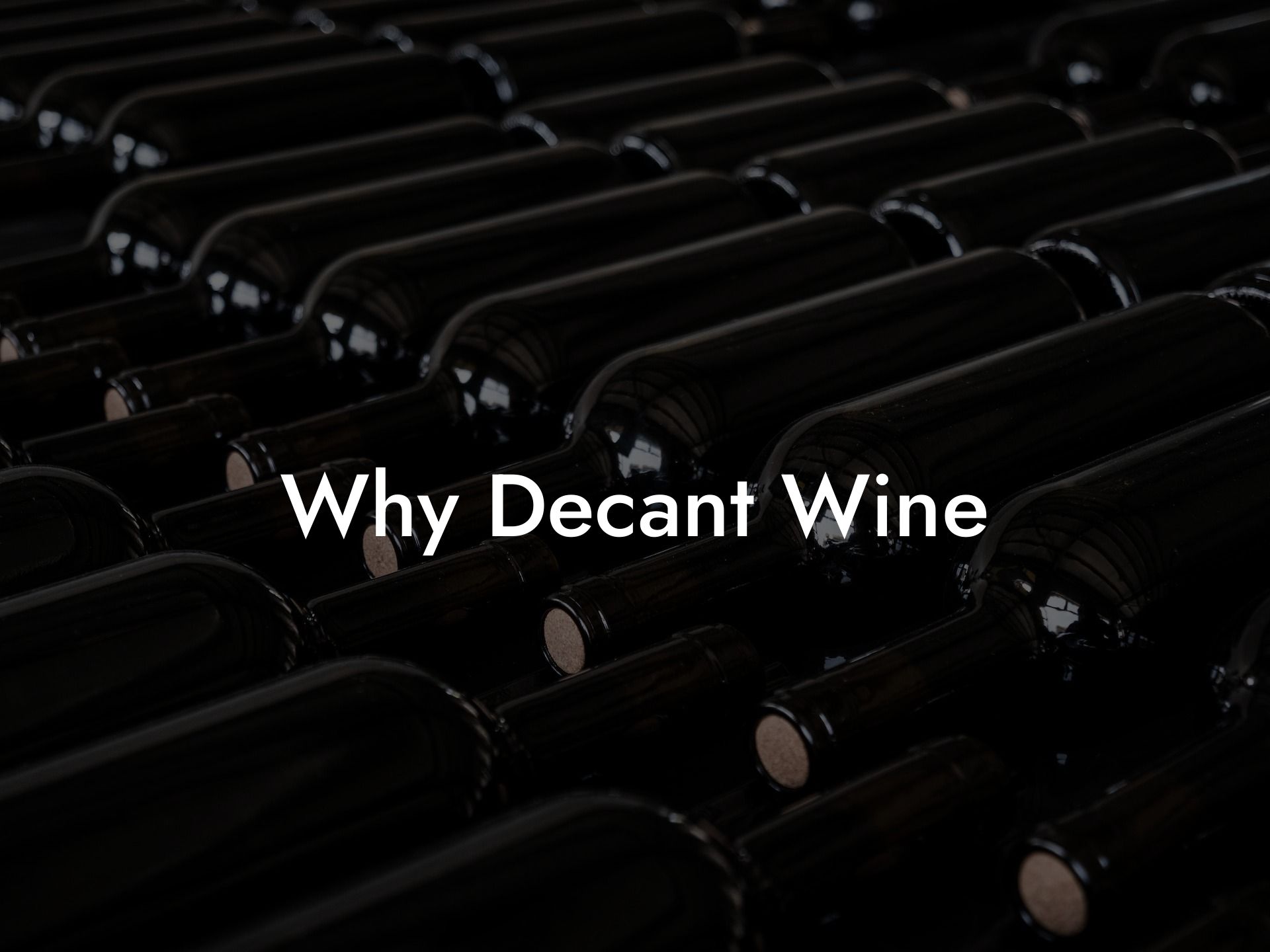Attention wine enthusiasts and aspiring connoisseurs, have you ever wondered why people decant wine? If so, this is the perfect guide for you. Delve into the process and importance of decanting, and learn how to elevate your wine experience in a flash.
Why Decant Wine Table of Contents
What is Decanting?
Decanting is the process of pouring wine from its original bottle into a separate container, called a decanter. It serves two main purposes: to separate the wine from any sediment that may have formed in the bottle and to aerate the wine to unleash its true flavors and aromas.
Why Decant Wine?
1. Separating Sediment
Over time, wine can develop sediment, which is formed due to aging, improper storage, or naturally occurring particles from the winemaking process. Separating the wine from sediment improves the overall clarity and ensures a smoother sip, without any unpleasant gritty textures.
Do You Want to Win a Free Bottle of Wine?
Don't miss out on the opportunity to win a free bottle of wine every week.
Enter our weekly prize draw today!
2. Aeration
Exposing wine to oxygen – aka aeration – helps to reveal its true character, flavors, and aromas. While swirling wine in your glass is one method, decanting elevates the process. Breathing life into the wine, decanting makes it more expressive and enjoyable.
3. Enhancing the Wine Experience
Decanting also adds a touch of elegance and sophistication, making it a fascinating process to observe as a wine lover. Beautiful decanters become conversation pieces and elevate any gathering or tasting event.
Which Wines Benefit from Decanting?
1. Red Wines
- Young Reds: Decanting is particularly beneficial for young, tannic red wines as it helps to soften the tannins, resulting in a more balanced and enjoyable wine.
- Aged Reds: Decanting is also advantageous for older, mature red wines as it may have sediment and can benefit from breathing. However, be cautious with extremely old wines, as the decanting process may cause them to lose their delicate flavors and aromas too quickly.
2. White Wines
While not as common, white wines can also benefit from decanting. Rich, full-bodied whites, such as Chardonnay or Viognier, will gain complexity and depth when decanted. Be mindful of temperature, as white wines should be enjoyed chilled, so don't decant for too long.
Why Decant Wine Example:
Imagine hosting a wine tasting at home with your artsy friends. As they arrive, you pour a glass of a young, bold red wine. It tastes good, but the tannins are slightly overpowering. After decanting the wine for 30 minutes, you serve it again – much to everyone's amazement, the transformation is evident. The wine's flavor profile has evolved, and the once-harsh tannins have melted into the background, giving way to hidden nuances. Witnessing the power of decanting elevates your gathering to a new level, adding an engaging element of education and discussion to your wine experience.
Congratulations, wine explorer! You now hold the knowledge to heighten your wine experiences and truly appreciate the art of decanting. But why keep this new knowledge to yourself? Share this article with fellow wine lovers and invite them to discover the wonders of decanting. Plus, don't forget to check out more informative guides on Black Wine Club to fuel your passion and continue your wine education journey.
Do You Want to Win a Free Bottle of Wine?
Don't miss out on the opportunity to win a free bottle of wine every week.
Enter our weekly prize draw today!












